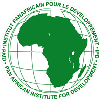Achieving the Sustainable Development Goals: Africa’s Challenges and PAID’s Response
Abstract
Sustainable Development Goals (SDGs) have been adopted by the United Nations (UN) General Assembly to replace the Millennium Development Goals (MDGs) that expired in 2015. Like the MDGs, the SDGs seek to fight against poverty and hunger, promote human rights, and empower all in the society especially women and girls. To support the achievement of the SDGs by African countries, the International Association, Pan African Institute for Development (PAID), during its 47th Governing Council Meeting held in Ouagadougou, Burkina Faso on the 16th – 17th of December 2015 discussed “Africa’s development challenges and PAID’s response”. The Meeting notes that Africa’s development challenges are numerous and multi-faceted. Hence, timely achievement of the SDGs will require an integrated multi-stakeholder approach. This paper reviews the progression from the MDGs to the SDGs, particularly key weaknesses of the MDGs that have been strengthened in the SDGs agenda, and makes proposals for enriching the SDGs further with PAID’s guiding principle of concerted, decent and sustainable development. The paper further discusses how PAID can support implementation of the SDGs agenda through a variety of training activities, research and development programs, and consultancy/support services.
Keywords: SDGs, MDGs, PAID, social economy, sustainable development, development challenges, climate change.
Full Text:
PDFReferences
African Development Bank. (2010, September). Infrastructure Deficit and Opportunities in Africa. Economic Brief 1.
African Union. (2013, January 27). PAN-AFRICANISM AND AFRICAN RENAISSANCE. AU ECHO: Special Edition for the 20th AU Summit Issue 05.
Banke, B. (2013, December). Addressing Africa's infrastructure deficit. EY’s Dynamic Magazine.
Essia, U. (2012). Poverty in Nigerian Universities: Paradigm Shift towards the training of more Emotionally Resilient Graduates. Science Journal of Psychology, 10. doi:sjpysch éé-
Essia, U. (2013). Entrepreneurial Culturing of Formal Education Programmes in Nigeria. Journal of Sustainable Societies, 52-62.
Essia, U. (2016). Lecture on Guiding Principles of the Pan African Institute for Development (PAID) and Science of Development. www.paidafrica.org/paidwa/publications.
IMF . (2014). World Economic and Financial Surveys Regional Economic Outlook: Sub-Saharan Africa Staying the Course. International Monetary Fund.
Kamdem, E. (2012). Concertalism, concertocracy and social economy. Paris: L’Harmattan.
National Academy of Science. (1999). How people learn: Brian, mind, experience, and school Bransford J. D. et. al. (Eds). Washington: National Academy Pres.
Ndongko, W. and U. Essia (2012). Africa’s Economic Development in the Global Context: The Influence of External Economic Factors on Policy-Making and Management in the Continent. IOSR Journal of Humanities and Social Science, 29-37.
Nkurayija, J. d. (2011). The Requirements for the African Continent’s Development: “Linking Peace, Governance, Economic Growth and Global Interdependence”. Berlin.
PAID. (2015). Unedited Report of the 47th Governing Council Meeting of PAID , held at IPD – AOS on the 16th – 17th of December 2015. Pan African Institue for Development . Ouagadougou, Burkina Faso: Unpublished.
Power, G. M. (2008). New African choices? The politics of Chinese engagement in Africa and the changing architecture of international development. Review of African Political Economy 35(1), 23—42.
René Kemp and Saeed Parto, R. B. (2005). Governance for sustainable development: moving from theory to practice. Interational Journal of Sustainable Development, 8(1/2).
Salim, S. A. (2014, May 24). Leadership paradigm for a new Africa. Sunday Independent.
Sharon Bailin, R. C. (1999). Conceptualizing critical thinking. Journal of Curriculum Studies, 285 – 302.
Trickett, E., Beehler, S., Deutsch, C., Green, L., & Kenneth Mcleroy, R. M. (2011). Advancing the Science of Community-Level Interventions. American Journal of Public Health, 1410–1419.
UNESCO. (2008). Communication for Development and Social Change Jan Servaes (Ed.). www.sagepublication.com.
United Nations. (2013). Africa Regional Consultative Meeting on the Sustainable Development Goals Outcome Document. www.uneca.org: Economic Commission for Africa.
United Nations. (2015). FINANCING AFRICA’S INFRASTRUCTURE DEVELOPMENT. office of the special adviser on Africa Policy Brief.
United Nations. (2015). Transforming our world: the 2030 Agenda for Sustainable Development. https://sustainabledevelopment.un.org/post2015/transformingourworld.
Wikipedia. (2015). Critical Thinking.
Wikipedia. (2016). Millennium Development Goals. https://en.wikipedia.org/wiki/Millennium_Development_Goals.
Wikipedia. (2016). Sustainable development. Wikipedia.
World Bank. (2006). Infrastructure: A survey of recent and upcoming issues. World Bank.
World Bank. (2013). Fact Sheet: Infrastructure in Sub-Saharan Africa. The World Bank. World Economic Forum. (2015). Blueprint for Africa's infrastructure deficit. World Economic Forum.
World Health Organization. (2016). Health in 2015: from MDGs to SDGs. World Health Organization.
Refbacks
- There are currently no refbacks.

This work is licensed under a Creative Commons Attribution-NonCommercial-NoDerivatives 4.0 International License.
